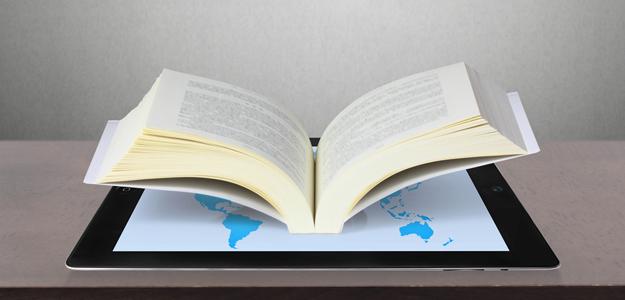
A friend of mine scoffed last week when I noted that I actually budget reading time into my workday. He started with the tried and true “Must be nice to be self-employed.”
I explained that, as a professional writer, reading is just as important as sitting at the keyboard. It provides the raw materials that my brain turns into finished works.
“But why do you have to schedule reading time? You spend 8 hours a day at a computer, like the rest of us. Most of that is reading.”
We then got into a discussion on whether humans read more now than they did 50 years ago, before the majority of us were stuck in front of a screen all day.
I don’t think that anyone can doubt that as a society we read more now than we have at any time in our history, on a per-word basis. Half the people of the civilized world have what amounts to the world’s grandest library in their pocket.
Of course, it’s not just a library.
Estimate how many words you read per day on Twitter alone. If you are a user of any volume at all, that number is at least in the hundreds. Then add on Facebook. Maybe you are an avid user of RSS. Perhaps you are a fan of Fark or Reddit, in which case your per-day word count explodes astronomically. And we won’t even mention texting. A lot of people read the equivalent of a magazine’s worth of text every day.
But why is that not enough for me?
First, because an article from Fark entitled “Pet monkey put on house arrest” is not what anyone would consider high art.

An article in Scientific American by Coco Ballantyne from 2008 – before the widespread adoption of e-readers and tablets – attempted to describe the differences in reading online from reading books.
Citing a study from the Journal of Research in Reading, the article states that the simple acts that we take for granted, like scrolling and changeable dimensions of text, are affecting our neural reasoning – perhaps on an evolutionary level. The simple act of having to scroll down to read more text, or (god forbid) having to click a link to get to the next page of a piece is warping our attention spans and decreasing our tolerance for longer works.
You could be tempted into thinking that this is a harbinger for the death of longer reading. As English teachers have been saying since the advent of the Internet, the novel may not exist for your grandchildren’s generation, and with its demise goes humanity’s most efficient method of storytelling.
But a funny thing is happening while all of this technology is killing longer textual works: more people are reading books and novels than ever before.
For the past 50 years or so, during their various polling, Gallup has systematically asked their respondents if they happen to be reading any books or novels at the present time. In their most recent release of the results of that questions in 2005, nearly half (47 percent) of the people questioned said “yes.”
In 1949, before television allegedly sucked out our parents’ brains and all people had to do for entertainment was read and listen to an hour of radio at night, that number was 21 percent.
I would venture to guess that that percentage has only grown further, now that people can carry thousands of books with them wherever they go and can read them in the little snippets that our brains are now accustomed to while they commute to work or wait at the doctor’s office. I’m even hopeful that the majority of that percentage wouldn’t be made up of people reading Fifty Shades of Grey.
Humans are an adaptable species, which is how we’ve come to rule this planet in the first place (although all bets are off if an asteroid comes around). I have simply adapted my reading habits to my current lifestyle. Apparently other people are doing the same.
Our technology is not destroying our old traditions of transacting information; it is making them accessible to more and more people. One of our priorities moving forward should be ensuring that everyone has that access.
[Image credit: Book & Tablet – Denphumi/Shutterstock; Book & Laptop – Wrangler/Shutterstock]


